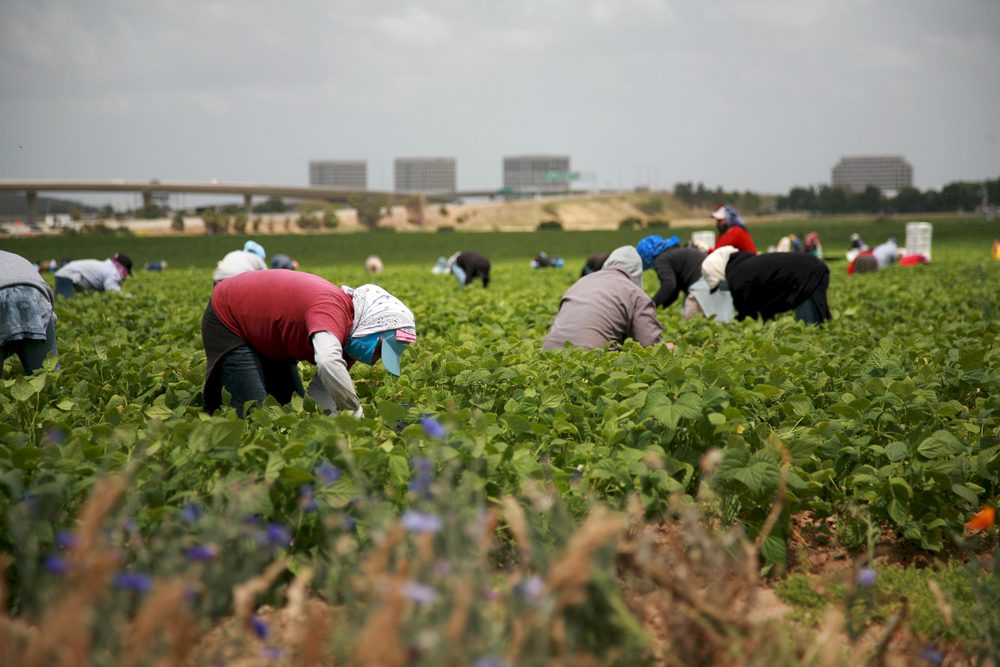Fighting for Farmworker Justice
When people think of trafficking, they often think about sex trafficking. But labor trafficking is also an insidious problem globally and particularly in the agricultural labor sector. Trafficking incidents across various U.S. visa programs demonstrate the need for oversight, monitoring, transparency and regulation of international recruitment systems. Workers’ experiences during recruitment abroad have a substantial impact on their earnings and conditions in the U.S. Illegal recruitment fees and tying workers to a single employer while in the U.S. creates a vulnerable and dependent workforce. Pedro, a victim of these illegal practices, shared his story with us. His story is included in our report No Way to Treat a Guest :
Pedro, was a teacher in Peru when he was told he could make $1,300 a month as a sheepherder in the U.S. He jumped at the chance to better provide for his wife and child. He paid more than $6,000 in recruitment and visa fees, arriving in Colorado on an H-2A visa in spring 2009. He then learned that he would be working 11-14 hour days, seven days a week, for only $750 a month. His employer took his passport, social security card, and other documents. On the ranch, he was housed in a small sheep wagon with holes, and a broken door with no bathroom or refrigerator. Though his employer was supposed to provide him with food every weekend, he would often not show up. When he protested, the rancher threatened to send him back to Peru. Eventually, Pedro was sent to herd sheep in the mountains. He lived in a tent and became ill. Though $27 per month was deducted from his pay for health insurance, the rancher refused to take him to the doctor. In August, he fled and found a legal services attorney, who was able to help him reclaim his documents and some of his stolen wages.
Human trafficking is not only an international recruitment problem. Here in the United States we continue to see domestic labor trafficking in the agricultural sector. In 2012, Farmworker Justice brought a lawsuit against a potato farm in northern Florida for violations of human trafficking and employment laws.

The potato grower Bulls-Hit used labor contractor, Ronald Uzzle, to recruit and supervise farmworkers. Uzzle recruited drug-addicted men from homeless shelters in Jacksonville, Florida, to form work crews. Uzzle took advantage of the workers’ drug dependencies by not paying the proper wages, subjecting them to decrepit housing and supplying them with drugs and loans at more than 110% interest rates.
The case eventually settled against both the Bulls-Hit and Uzzle. In addition to paying back wages, Bulls-Hit agreed to only use reputable, licensed labor contractors and to pay workers directly. This case sent an important message to growers that they will be held responsible for the illegal labor practices of their labor contractors.
Litigation is only one of the varied tools that we use at Farmworker Justice to combat labor trafficking. We seek to address the root causes by working to improve the immigration system’s international labor protections, and labor law enforcement. Additionally, we are involved in the Equitable Food Initiative, which creates an on-farm mechanism through which farmworkers work with management in leadership teams to identify and address threats to food safety, labor issues, and social accountability on a continuous basis.
Human trafficking for food labor can only be curtailed when a multi-tiered approach is implemented to address immediate threats while creating long-term solutions to remove the conditions that make the agricultural system ripe for abusive, illegal practices.
Farmworker Justice is a nonprofit litigation, advocacy and education organization that seeks to empower migrant and seasonal farmworkers to improve wages, working conditions, immigration policy, health, occupational safety and access to justice.
Dr. Jessica Felix-Romero is the communications director at Farmworker Justice. She is an expert in agriculture, food politics, and conflict resolution. Her doctoral research studied sustainable agriculture design as a peace building tool in post-war contexts.
